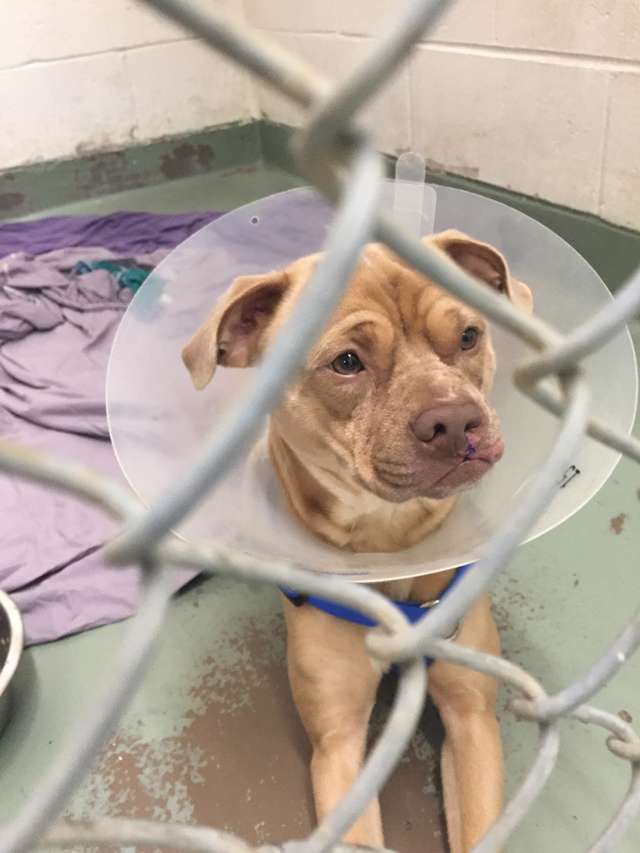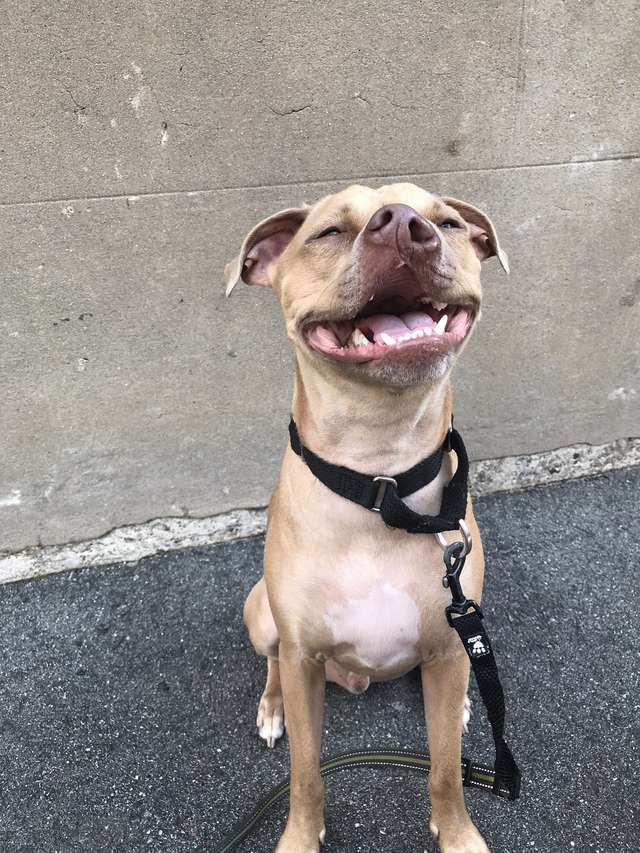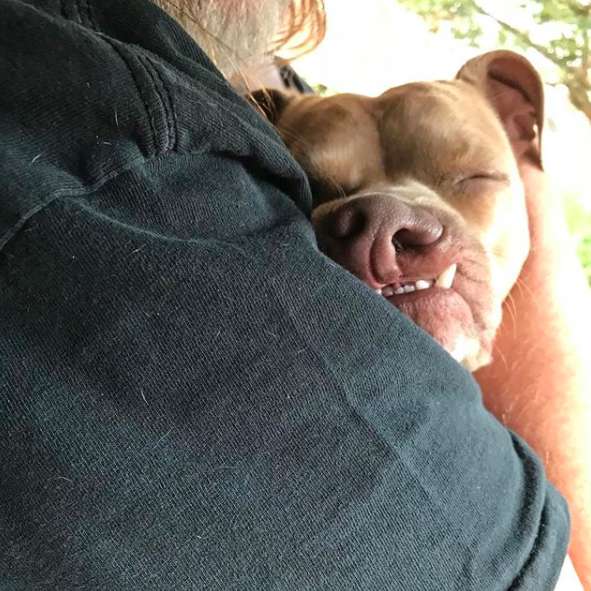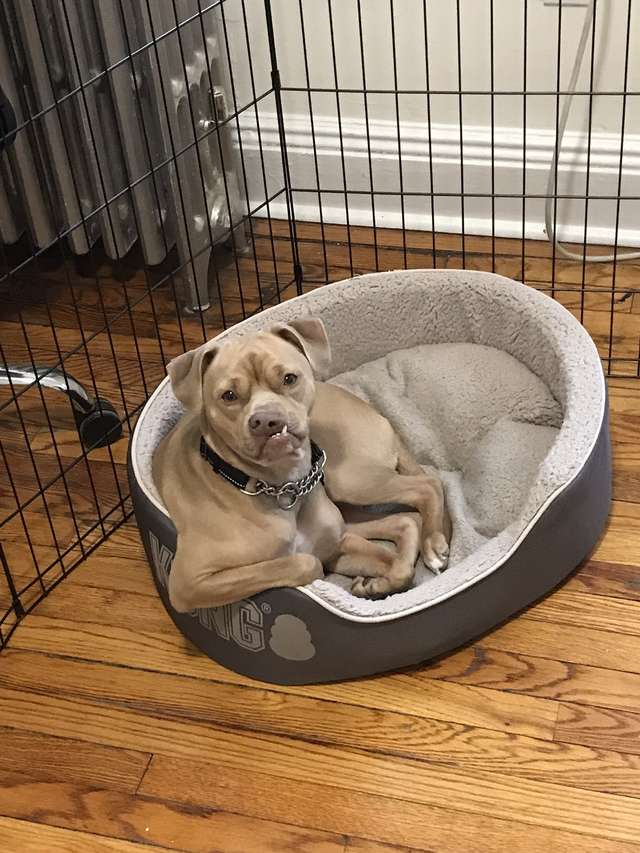Clefford is a special needs dog because he was born with a cleft palate. The human who adopted him only see the dog as special.
A Pit Bull born with a cleft palate could not eat kibble the way regular dogs do. Because of his birth defect, Clefford also needed a special diet so that he won't hurt himself while eating.
But this family dog had to be given up by his humans when they lost their home. Boston's Angell Animal Medical Center took the dog in because his family could no longer afford to care for a pet with special needs.

Despite his sweet and gentle nature, it took a while for Clefford to be adopted because of how he looked. Most people took pity on the dog but he still couldn't be matched with a forever family.
Drawn to Clefford
Shelter volunteer Will Stoltenberg, who has been with the Angell Animal Medical Center for about a year, said that he was drawn to the pup the minute Clefford arrived at the shelter. He said that each time he'd check on the rescues, he'd always make it a point to return to Clefford's kennel, where the dog would be eagerly waiting and begging for belly scratches.
For the next three months, the dog would form a bond with Will. It finally dawned on the volunteer that he should be the one to adopt the dog with special needs.

Talking to E! News, Will said that he really wanted to teach Clefford to get past his disability. He wanted to become that one person who would show the dog that he is special and loved.
Clefford Gets Surgery
Before Will adopted the dog, however, the shelter already took care of repairing Clefford's cleft palate. The vets needed to work on him as soon as possible because his health was at risks. The birth defect affected the dog's nasal passages. If not for the surgery, Clefford would have suffered from major infections inside his lungs.

But the medical fixes are not yet done. Though Clefford is still resting, he's still scheduled to get a couple more operation when his body is stronger, including a dental surgery
Change in Behavior
Will, however, said, that ever since he took Clefford home, he's noticed some changes in the dog's behavior. The Pit Bull seemed to have become a lot more affectionate and calmer. Clefford used to fear a lot of things. He would shake when he hears vehicles or other dogs. Even the sound of a high-pitched woman's voice terrified him.

But as the dog has slowly adjusted to his new life, Will said that Clefford would also train to become a service dog. For now, however, the pup's health is the priority.
What to Know About Cleft Palate in Dogs
Pups with a cleft palate birth defect have higher risks of dying because of inadequate nourishment. Pups with mild cases, however, may survive adult life but could suffer from a stunted growth, breathing problems, frequent gagging, or lung infection, just like Clefford.

The condition is mostly genetic. However, the mom of a pup with cleft palate might have been exposed to a virus or a disease during her pregnancy. She might have also suffered from nutritional deficiencies.
Surgery to correct the condition in pets is very common and safe. It's the recovery that pet owners have to carefully watch out for since the wound could easily become infected because the dog might lick or scratch its nose on surfaces. Hence, the dog will have to wear a cone until the wound has healed. In some cases, the dog might also have to be fed by tube until the full recovery.

If you have a dog with cleft palate, talk to your veterinarian for the most appropriate treatment option.













